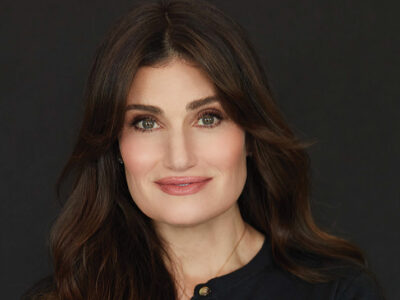“Get over it already.”
The Daily Pennsylvanian headline chided seniors who were griping about the selection of actress Jodie Foster to speak at graduation. “Of course the University should have done better,” the March 1 editorial read. “It’s not like Foster was near the top of anyone’s short list for Commencement speaker. But […] the reaction from Penn students is just embarrassing.”
One of the complaints came from senior class president Pierre Gooding: “Considering past speakers, we were under the impression it would be someone with a recognizable social commitment,” he told the newspaper, adding that Foster’s name didn’t appear on a list suggested by students. Their picks included entertainer/businesswoman Oprah Winfrey, Apple Computer CEO Steve Jobs, British Prime Minister Tony Blair, and political comedian Jon Stewart.
“I think the truism that you can’t please all people all the time is certainly appropriate for this,” says University Secretary Leslie Kruhly, who oversees the selection of the commencement speaker and all honorary-degree recipients. (After gathering input from students and faculty, the decisions are ultimately made by a committee of trustees and Penn’s president.) “This is my sixth speaker involvement, and there has always been a contingent who’s been disappointed,” Kruhly says.
While one can only guess if, say, Gustave Adolf, who was the Crown Prince of Sweden and the Class of 1938’s graduation speaker, made any student short list, a browse through the DP’s 16 years of online archives confirms that commencement envy is a perennial condition.
Former First Lady Barbara Bush’s selection in 1990 drew “mixed reviews,” the newspaper reported.
“If you had a female speaker who got to be where she was because of what she did rather than because she’s the wife of the President, it would be better in terms of a role model,” said Mark Onufrak EAS’90.
Sometimes the grass looks greener on the other campus. “Dartmouth got Bill Clinton—if they can do it, why can’t we?” asked Christopher Prokop C’95 upon learning that Jane Alexander, the actress and then-chair of the National Endowment for the Arts, would be the speaker for his commencement.
Nobel Prize-winning poet Seamus Heaney was an exciting choice for Commencement 2000—if you were an English major, scoffed some seniors. And television journalist Jim Lehrer, the 2002 pick, apparently was not enough of a celebrity. “I’ve always recognized the [speakers’] names before, but Jim Lehrer didn’t ring a bell,” said Alessandro Rimoldi EAS’02.
According to Kruhly, the selection of a graduation speaker begins a year in advance. “The speaker is supposed to represent the highest ideals of the university, and [we must] figure out which individuals qualify for that and which individuals we think we have some ability to secure a commitment from.”
Adding to the challenge is the fact that Penn bestows honorary degrees but no honorariums upon its speakers. “There are often individuals whom everybody thinks might be a great speaker, but they’re not prepared to come without an honorarium,” Kruhly says.
Even when Penn does secure a speaker with big name-recognition—say Archbishop Desmond Tutu in 2003, Bono in 2004, or United Nations Secretary-General Kofi Annan in 2005, that fame doesn’t guarantee the satisfaction of every commencement constituent.
A number of students and alumni were offended by remarks that Tutu had made in the press—in one case comparing the state of Israel with Hitler and apartheid—and didn’t want him to speak at Penn’s graduation.
Calling Annan “an incompetent leader” and a “polarizing figure,” a small group of students petitioned, unsuccessfully, to replace him as speaker; alumni and parents complained even more vocally, Kruhly recalls.
Most students were thrilled to have the musician Bono join their procession, but many parents and alumni were not, Kruhly notes. “Not knowing much about his work on world debt relief and HIV-AIDS, they just thought of him as a rock star.”
On the other hand, the varied reactions guarantee that at least some people will be happy with the speaker choice. While some undergraduates have panned Foster, for example, Kruhly reports that she’s gotten “enormous positive feedback” from graduate students, “who have a different sense of her achievements.”
When the members of the Class of 2006 return their caps and gowns, Kruhly will turn her focus to next May. “We already have a slate of candidates and are making some approaches,” she says.
Hmm. Wonder if any Oscar-winning rock-star Nobel Laureate heads-of-state are available?
—S.F.
Jodie Foster to Address Class of ’06
Jodie Foster, an Academy Award-winning actress, director, and producer, will speak at Penn’s 250th Commencement on May 15.
Foster has appeared in nearly 40 films, earning Oscars for her performances in The Accused and The Silence of the Lambs, as well as Nell, a movie produced through her own production company, Egg Pictures.
Penn President Amy Gutmann described her as “an eminent Ivy League graduate who has achieved tremendous success and influence in the powerful entertainment industry.” Gutmann added, “She has used her tremendous talents to bring before an international audience such weighty social issues as violence against women, parent-child relationships, and the challenges faced by women in traditionally male professions.”
Foster graduated magna cum laude from Yale University in 1985 with a degree in literature.
The Ghosts of Commencements Past
Here’s a sampling of Commencement speakers going back to 1938, who may or may not have commanded name-recognition in their day:
1938: Gustave Adolf, Crown Prince of Sweden
1940: Franklin D. Roosevelt, President of the United States*
1946: Quo Tai-Chi, U.N. Security Council Representative for China
1947: Margaret Mead, associate curator, American Museum of Natural History
1951: James R. Killian, Jr., president, Massachusetts Institute of Technology
1956: Henry Cabot Lodge, Jr., U.N. Representative for the United States
1961: Crawford H. Greenawalt, president, E.I. du Pont de Nemours & Co.
1966: Robert C. Weaver, Secretary, Department of Housing and Urban Development
1968: William S. Paley, chair of the board, CBS
1975: Gerald R. Ford, President of the United States
1976: Warren E. Burger, Chief Justice, U.S. Supreme Court
1979: Garry Trudeau, Doonesbury creator
1981: Vernon Jordan, president, National Urban League
1986: Michael Brown, Nobel Laureate, Medicine
1988: Patricia Schroeder, U.S. congresswoman
1993: Hillary Rodham Clinton, First Lady of the United States
1997: William H. Cosby, entertainer and educator
1998: Jimmy Carter, 39th President of the United States
2001: John McCain, U.S. senator, Arizona
2004: Bono, co-founder of DATA (Debt, Aids, Trade, Africa) and lead singer of U2
Source: University Archives and Records Center
* Franklin spoke at a special mid-year ceremony in September 1940.




